Финские уроки - [90]
Ravitch, D. (2010b, July 6). Speech to the Representative Assembly of the National Education Association, New Orleans, LA.
Ravitch, D. (2010c). The death and life of the great American school system. How testing and choice are undermining education. New York: Basic Books.
Riley, K., Torrance, H. (2003). Big change question: As national policy-makers seek to find solutions to national education issues, do international comparisons such as TIMSS and PISA create a wider understanding, or do they serve to promote the orthodoxies of international agencies? Journal of Educational Change, 4(4), 419–425.
Rinne, R., Kivirauma, J., Simola, H. (2002). Shoots of revisionist education policy or just slow readjustment? Journal of Education Policy, 17(6), 643–659.
Robinson, K. (2009). The Element: How finding your passion changes everything. New York: Viking Books.
Robitaille, D. R, Garden, R. A. (Eds.) (1989). The IEA study of mathematics II: Context and outcomes of school mathematics. Oxford: Pergamon Press.
Routti, J., Ylä-Anttila, P. (2006). Finland as a knowledge economy. Elements of success and lessons learned. Washington, DC: World Bank.
Saari, J. (2006). Suomen mallin institutionaalinen rakenne [The institutional structure of the Finnish model] // J. Saari (Ed.), Suomen malli — Murroksesta menestykseen? [The Finnish model — From reformation to success]. Helsinki: Yliopistopaino.
Saari, S., Frimodig, M. (Eds.). (2009). Leadership and management of education. Evaluation of education at the University of Helsinki 2007–2008. Administrative Publications 58. Helsinki: University of Helsinki.
Sahlberg, P. (2006a). Education reform for raising economic competitiveness. Journal of Educational Change, 7(4), 259–287.
Sahlberg, P. (2006b). Raising the bar: How Finland responds to the dual challenge of secondary education? Profesorado, 10(1), 1–26.
Sahlberg, P. (2007). Education policies for raising student learning: The Finnish approach. Journal of Education Policy, 22(2), 173–197.
Sahlberg, P. (2009). Ideat, innovaatiot ja investoinnit koulun kehittämisessä [Ideas, innovation and investment in school improvement] // M. Suortamo, H., Laaksola, Välijärvi (Eds.), Opettajn vuosi 2009–2010 (pp. 13–56). [Teachers year 2009–2010]. Jyväskylä: PS-kustannus.
Sahlberg, P. (2010a). Rethinking accountability for a knowledge society. Journal of Educational Change, 11(1), 45–61.
Sahlberg, P. (2010b). Educational change in Finland // A. Hargreaves, A. Lieberman, M. Fullan, D. Hopkins (Eds.), Second international handbook of educational change (pp. 323–348). New York: Springer.
Sahlberg, P. (2011a) The fourth way of Finland, Journal of Educational Change, 22(2), 173–185.
Sahlberg, P. (2011b). Becoming a teacher in Finland: Traditions, reform and policies II A. Lieberman L. Darling-Hammond (Eds.), High quality teaching and learning: International perspectives on teacher. New York: Routledge.
Sarason, S. (1996). Revisiting «The culture of the school and the problem of change». New York: Teachers College Press.
Schleicher, A. (2006). The economics of knowledge: Why education is key for Europe's success. Brussels: The Lisbon Council.
Schleicher, A. (2007). Can competencies assessed by PISA be considered the fundamental school knowledge 15-years olds should possess? Journal of Educational Change, 8(4). 349–357.
Schulz, W., Ainley, J., Fraillon, J., et al. (2010). ICCS 2009 International Report: Civic knowledge, attitudes and engagement among lower secondary school students in thirty-eight countries. Amsterdam: IEA.
Seddon, J. (2008). Systems thinking in the public sector: The failure of the reform regime… and a manifesto for a better way. Axminster, UK: Triarchy Press.
Simola, H. (2005). The Finnish miracle of PISA: Historical and sociological remarks on teaching and teacher education. Comparative Education, 41(4), 455–170.
Ståhle, P., Wilenius, M. (2006). Luova tietopääoma: Tulevaisuuden kestävä kilpailuetu [Creative intellectual capital: Sustainable competitive advantage of the future]. Helsinki: Edita.
Ståhle, P. (Ed.) (2007). Five steps for Finland's future. Helsinki: TEKES.
Statistics Finland (a). Education. http://www.stat.fi/til/kou-en.html
Statistics Finland (b). Research and development, http://www.stat.fi/til/ttke/index-en.html
Statistics Finland (с). Income and consumption, http://www.stat.fi/til/tu-en.html
Statistics Finland (2011). Population structure, http://www.stat.fi/til/vaerak/2010/vaerak-2010–2011-03–18-tie-001-en.html
Steinbock, D. (2010). Winning across global markets: How Nokia creates advantage in a fast-changing world. New York: Jossey-Bass.
Toom, A., Kynäslahti, H., Krokfors, L., et al. (2010). Experiences of research-based approach to teacher education: Suggestion for the future policies. European Journal of Education, 45(2), 331–344.
UNDP (2007). Human development report. New York: Oxford University Press.
UNICEF (2007). Child poverty in perspective: An overview of child well-being in rich countries. Florence: Innocenti Research Centre Report Card 2007.
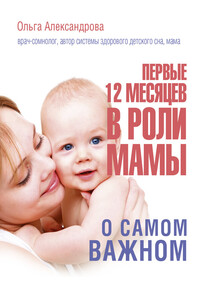
Быть мамой – одна из самых сложных работ на свете. У нее нет выходных и конца рабочего дня, нет праздников и отпуска, с этой работы нельзя уволиться. Поэтому и эмоциональное состояние мамы – самое важное на первом году жизни малыша. Эта книга для тех, кто готов изучать себя как родителя, как личность, как человека. Кто хочет и готов изучать своего ребенка. Кто готов не к воспитанию, назиданиям и наказаниям, а к общению, к выстраиванию с ребенком отношений. Кто готов соприкоснуться со своим внутренним миром и увидеть внутренний мир ребенка.
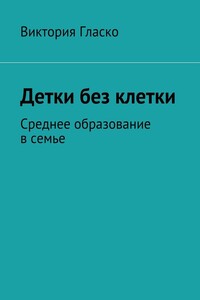
Друзья! Я рада представить вам свою первую книгу «Детки без клетки». В ней я делюсь своим опытом в семейном образовании, своими мыслями, выводами, наблюдениями. Книга будет полезна семьям, которые по каким-то причинам не хотят или не могут отдать ребенка в школу. Как учить? Чему учить? Как преодолеть страх оторваться от школы? Ответственность? Ответы на эти и другие вопросы вы найдете в этой книге. Семейное образование — это образ жизни. Виктория Гласко.
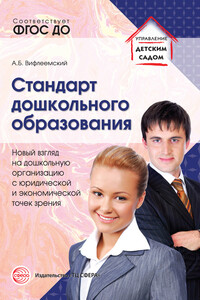
В книге анализируется дошкольное образование как новый уровень общего образования, регламентируемый федеральным государственным образовательным стандартом.Выявляются противоречия и недостатки ФГОС дошкольного образования, возможные последствия его введения для дошкольных образовательных организаций, педагогических работников и граждан – потребителей услуг дошкольного образования.Рассматриваются нюансы финансового обеспечения реализации стандартов, разработки и утверждения образовательных программ, установления родительской платы и предоставления мест в детских садах с учетом требований ФГОС ДО.Рекомендовано руководителям ДОО, педагогам дошкольного образования, родителям.
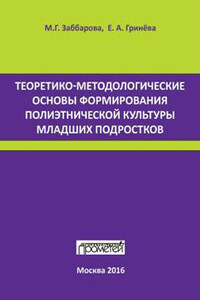
В предлагаемой монографии представлены теоретико-методологические основы формирования полиэтнической культуры младших подростков, раскрыты сущность, генезис, идеи, подходы, аспекты понятия «полиэтническая культура», представлена модель формирования полиэтнической культуры младших подростков в процессе усвоения традиций народов Поволжья; теоретическое обоснование педагогических условий формирования полиэтнической культуры школьников.Монография предназначена для учителей, преподавателей и студентов педагогических вузов, слушателей курсов повышения квалификации, аспирантов педагогических специальностей.
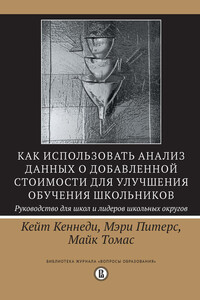
Книга посвящена объяснению, способам применения и интерпретирования технологии оценивания деятельности как образовательных институтов (региональных и муниципальных органов управления образованием), так и участников образовательного процесса (в первую очередь учителей и учеников) методом измерения добавленной стоимости. Авторы этой инновации применили данный термин из экономической теории к задачам школьного образования, связанным с многогранной проблемой оценивания результатов. Добавленная стоимость в этой книге – разница между начальной успеваемостью ученика (результатами тестов прошлого года) и его текущей успеваемостью (результатами тестов этого года)
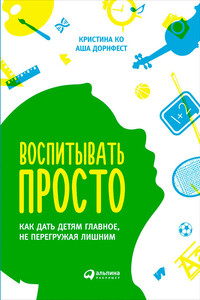
Испортить жизнь своему ребенку очень просто: запишите его во все кружки, загрузите домашними заданиями и завалите работой по дому. Выбейтесь из сил сами, сражаясь за место в лучшей школе, проштудируйте все воспитательные методики и примените их. В результате вы доведете себя до нервного истощения, а ребенка лишите детства. Авторы книги «Воспитывать просто» считают, что можно жить и воспитывать детей по-другому, минималистично. Они верят, что чем меньше лишнего в доме и в расписании, тем больше места для удивительного и прекрасного.